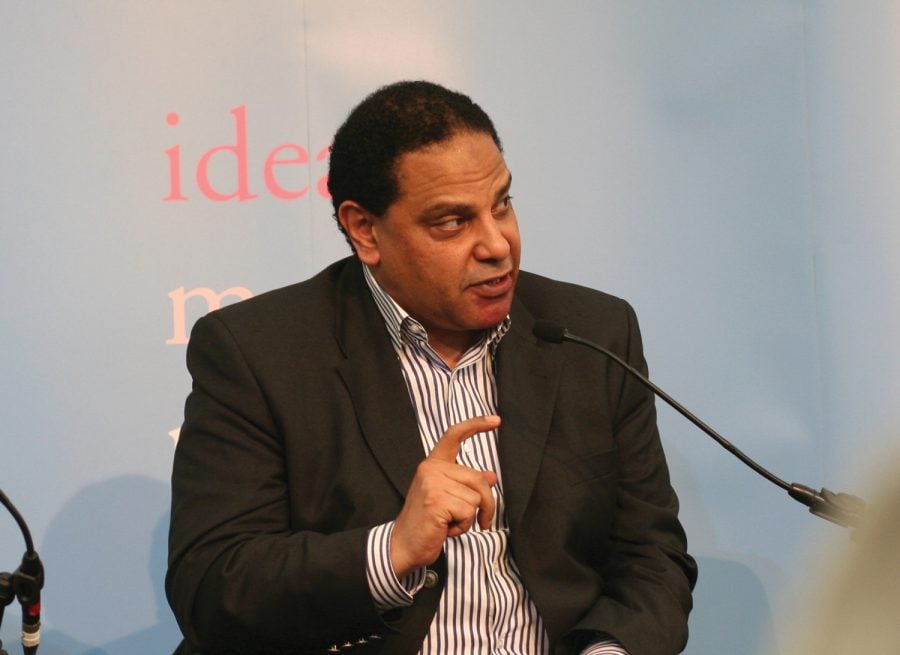Author Al-Aswany claims unjust military prosecution
Author Alaa Al-Aswany speaks at the 2009 Hay Festival.// photo courtesy of Jeremy Weate/Flickr
Alaa Al-Aswany, an Egyptian author and founding member of the political movment Kefaya, was sued by military prosecutors in Egypt in what he condemns as a “clear violation” of the country’s constitution.
“The Yacoubian Building,” Al-Aswany’s 2002 novel, sold over a million copies in 35 different languages. He published “The Republic, As If,” which was banned in Egypt after being published in 2018. The novel is set during the 2011 uprising in Egypt that led to President Hosni Mubarak’s resignation, and criticizes the country’s courts and interpretation of the constitution, parliament and state institutions.
He claims that the case comes in response to his articles written to Deutsche Welle. Commonly know as DW, the organization is Germany’s international broadcaster, a service available in 30 languages.
Al-Aswany had been “referred to a military court, accused of having insulted the head of state and incited hatred against the regime, as a result of (his) most recent novel and what (he writes) for DW.”
The author accused the Egyptian government of violating Article 65 of Egypt’s constitution guaranteeing free speech, as well as Article 19 of the Universal Declaration of Human Rights.
Al-Aswany has been a columnist for DW since 2016. As a columnist, he has published pieces entitled “She’s a woman, not an object” and “What should our attitude to the barbarians be?”
Al-Aswany stands by his criticisms of the current regime in Egypt and vows to “defend human values” through his novels. He declared “If my crime is to express my thoughts, I am proud.”
The author reported repeated harassment at places like airports and while interacting with police officials.
Al-Aswany has a hostile history with government officials in Egypt. He was a founding member of Kefaya, the grassroots coalition built upon a platform of protesting then-Egyptian President Mubarak.
The organization held its first protest in December 2004, where between 500 to 1,000 activists gathered in Cairo while surrounded by riot police. It was the first time a protest was organized to solely demand that President Mubarak step out of office.
Kefaya organized demonstrations outside of the Press Syndicate headquarters on May 25, 2005, they quickly became violent after riot police allowed a clash between Kefaya and National Democratic Party (those supporting Mubarak) members that led to two women being beaten and sexually molested.
This Februrary, a New York Times journalist was detained at Cairo’s international airport and sent to London without explanation.
According to the Wall Street Journal, the authorities have shut down news organizations and blocked 500 websites since the military takeover, in an effort to avoid a repeat of the 2011 Arab Spring uprising.
Egypt is the third-largest jailer of media workers in the world according to the Committee to Protect Journalists.
On Tuesday, Egypt’s top media regulator put tighter restrictions online that blocks popular websites and even social media accounts that are deemed a threat to national security. This “allows the Supreme Media Regulatory Council to account for fake news, and impose stiff penalties of up to 250,000 Egyptian pounds” without the need of a court order, according to The Philadelphia Tribune.
In 2014, Al-Aswany was banned from publishing in the Egyptian Daily, a publication in which he wrote a weekly column.
He was banned from appearing on state-run media the following year and prevented from hosting a public seminar. Today, the author teaches literature in the United States.









